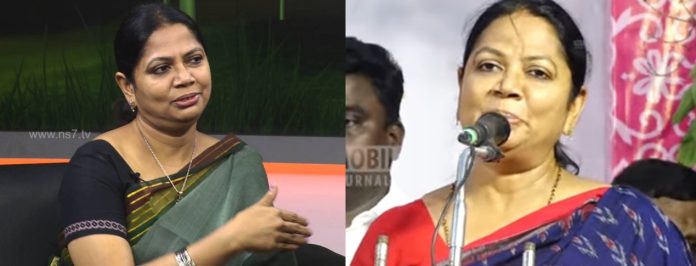– M Rafi Ahmed
I raise up my voice – not so I can shout, but so that those without a voice can be heard. So said women rights activist Malala Yousafzai, the youngest Nobel Peace Prize recipient in 2014 for championing the cause of girls’ right to education. Not unusual to witness Muslim women-folk breaking the glass ceiling to reach dizzy heights in their chosen line of interest.
Meet 58-year-old Salma alias Rokkaiya Malik from Thuvarankurichi in Trichy district who has been nominated to Rajya Sabha as MP by the DMK party. A recognition for her active involvement as an accomplished poet, writer and women’s rights activist. Presently, she is a joint secretary in DMK media wing. Her life wasn’t all that rosy as she had to face the odds to become what she is now.
More often than not known by her pen name Salma, she received global acclaim for her writings in contemporary Tamil literature. In fact, she developed an interest for writing right from her teenage years, inspired by Russian literature more so the translated works of Fyodor Dostoevsky and Leo Tolstoy. Ultimately, Nelson Mandela and Che Guevara became her icons.
Really heart-rending to read her story as she was betrothed to a cousin named Malik at the age of 13 and she got into wedlock after she turned 19 due to her mom’s pressure. Following marriage, Salma was granted the name of Rokkiah Begum and had two children. Her interest in literature continued in her married life and was seen as akin to insanity by her family.
At 22, Salma wrote her maiden poem, Oppandham, as an outlet for her frustration and anger with her situation. Forced to hide her passion from her family, she would write while sitting on the toilet, on pieces of paper ripped from calendars and notebooks. It is learnt that she was subjected to abuse by her husband because of her desire to write and he would often destroy her work. Her mother eventually helped her by smuggling out poems from her home and getting them published in a Tamil weekly.
Salma hogged the limelight in literary circles during the nineties. Later, she signed with the Kalachuvadu publishing house and was invited to a number of literary conventions around Tamil Nadu which she visited under the guise of medical visits. Since a woman travelling alone was frowned upon in her social setting, her mother accompanied her on her first event in Chennai city.
Brushing aside the criticisms, she contested the local body elections in 2001 and was elected president of Ponnampatti panchayat. Since the seat was reserved for women, she could easily win the polls and carved a niche for herself in discharging the responsibility bestowed upon her by the villagers. Seizing the opportunity, she created awareness among the Muslim women on the importance of education.
Going the extra mile in her chosen line of interest, Salma got her anthology of short stories titled Saabam published in 2009, which was translated by N Kalyan Raman into English as The Curse: Stories. In 2016, she published her second novel Manaamiyangal, which narrated the parallel lives of two women named Mehar and Parveen. In a review by the Hindustan Times, the novel was described as having captured Hélène Cixous’s “feminine practice of writing”. [It was translated from Tamil into English by Meena Kandasamy under the title of Women, Dreaming.
It is interesting to infer that her novel “Irandaam Jaamangalin Kadhai” in 2004 was described as a semi-autobiographical work which depicted the life and hardships faced by a young girl called Rabia born in an orthodox Muslim minority community. Noteworthy to mention that Salma’s life was documented by Kim Longinotto in her documentary Salma, which is described as a journey of an under-educated housewife who was subjected to an effective form of house arrest and became an acclaimed Tamil literary figure. Longinotto herself described Salma as an “extraordinary beacon of hope”. The documentary, which was screened in 2013, received several awards and was seen in eleven countries. The quote of Elizabeth Cady Stanton, the American writer and activist who was a leader of the women’s rights movement in the US during the mid-to late-19th century – “The best protection any woman can have is courage” is relevant to Kavingar Salma.




